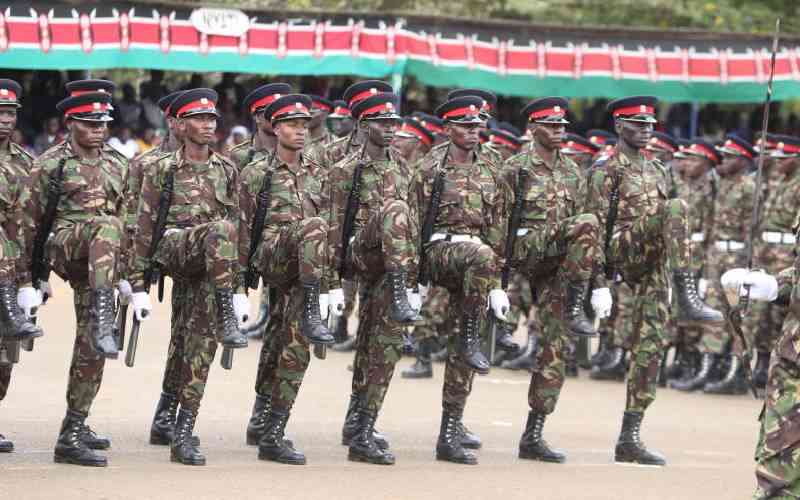Kenya Defence Forces Implement Pay-As-You-Eat Food Policy

The Kenya Defence Forces (KDF) is implementing a significant policy change, effective Tuesday, July 1, which will see the discontinuation of the long-standing meal subsidy for its officers. Under the new "Pay-As-You-Eat" (PAYE) system, KDF soldiers will now be required to pay for their meals, either directly in cash or through deductions from their monthly salaries. This move marks the end of a tradition that has provided free lunch to many officers for years, fundamentally altering how daily meals are accessed within the military.
This is not the first time the KDF's meal policies have been adjusted. A ration cash allowance was initially introduced in 2000, following the cessation of state-funded breakfast and dinner. However, the lunch subsidy remained in place, having been revised over the years to help cushion officers against rising living costs. For many junior officers, this lunch support has been described as a crucial and vital lifeline, heavily relied upon for their sustenance.
The Ministry of Defence has outlined several reasons for adopting the PAYE system. These include a desire to provide greater flexibility, reduce long queues at dining facilities, and eliminate inefficiencies such as the duplication of ration scales for officers posted to different locations. Furthermore, the Ministry states that this change aligns Kenya's military operations with what it considers to be best practices adopted by other regional and international defence forces, aiming to streamline budgetary allocations and improve overall resource management efficiency.
The operational rollout of the PAYE system was detailed in a letter dated June 23, signed by Chief of Logistics Brigadier Eric Nzioki Kitusya, Kenya Army Headquarters. Units have been instructed to utilize their existing infrastructure and amenities to support the new program, with any additional needs to be addressed on a case-by-case basis in the 2025/2026 financial year. To initiate the program, KDF units were authorized to demand 14 days' worth of rations, effective from July 1, 2025, to serve as "seed capital" for a self-sustaining revolving fund managed by designated committees. Demands for this capital were to reach the Headquarters by June 25, 2025.
Despite the government's justifications for the policy shift, the new directive has sparked considerable concern among lower-ranking service members. Many fear the financial burden that the change will impose, highlighting the significant reliance they had on the previous meal subsidy. The sentiment among some officers underscores the challenging adjustment they anticipate with the implementation of the new PAYE system.











